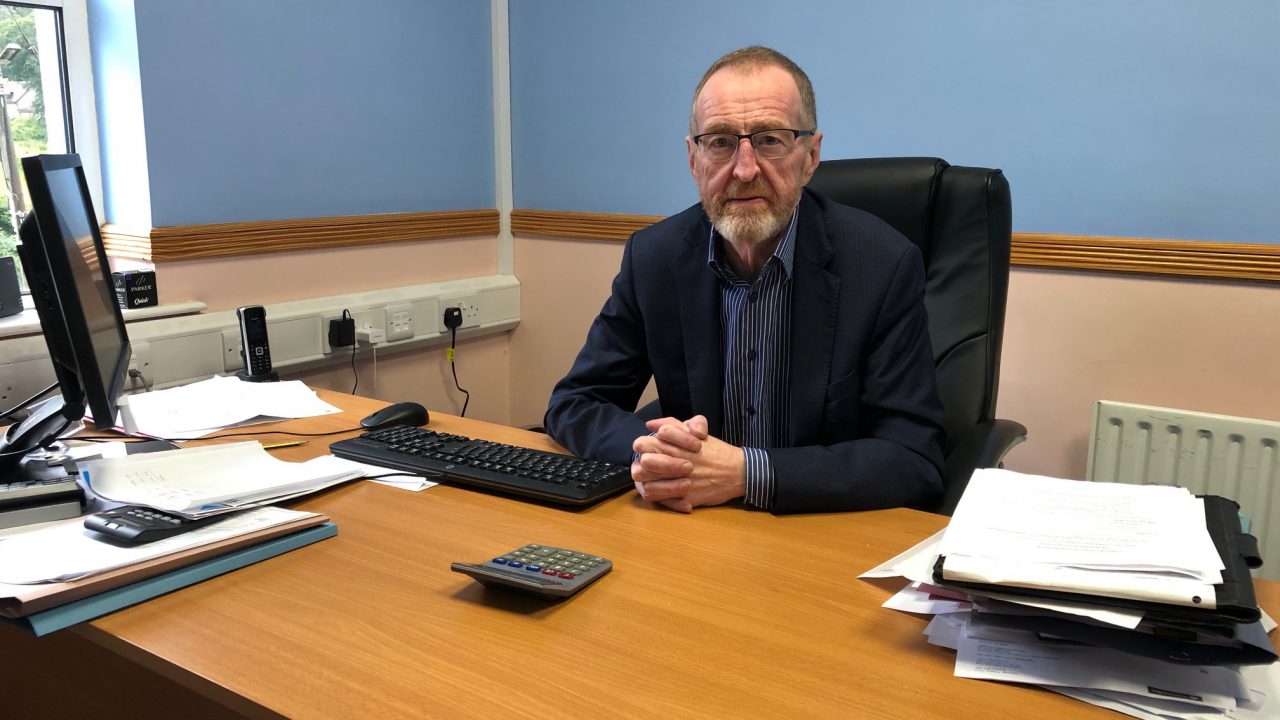Concerns for the future of farming along the border region in the aftermath of Brexit were brought to the fore this week after members of Border Communities Against Brexit (BCAB) highlighted the plight facing those living and working in Northern Ireland.
BCAB, meanwhile, was established in the autumn of 2016 – four months after the UK voted to leave the EU – following the emergence of mounting concerns over Brexit.
It very quickly became an important campaign in the effort to highlight – to the powers that be – the issues facing people living both north and south of the border.
Bernard Boyle is an accountant in Forkhill, south Armagh – a picturesque area that nestles quietly not far from the foot of Slieve Gullion. He too is a member of BCAB.
Forkhill is a predominately farming area in rural south Armagh, but over the last 20 years has been in receipt of EU and international funding – on the back of the Good Friday Agreement – that has helped to develop the locality and build bridges in the community.
Keeping things right
Boyle, meanwhile, has clients north and south of the border, many of which are farmers.
Many of my clients are farmers with between 20ac and 50ac.
He continued: “I have often done a farmer’s annual accounts and when you work out the net profit and examine the number of hours spent farming – the farmer often comes out with about £2.50/hour.
“I often ask them if they would work for someone else for as little as that?
Also Read: Brexit: ‘Ireland’s relationship with the UK is a high priority’ – Coveney“They would come back and say to me that they are not doing it for the money; they might have a full-time job themselves or the wife is working.
“They say it keeps the few quid together and keeps the land right, etc.”
Farming and sustainability
But with a no-deal Brexit very much on the cards now, Boyle says that this type of farming is no longer sustainable along the border region.
There is going to be a major detrimental financial impact on farmers in this area from Brexit.
He added: “What will happen then is that those farmers are not going to farm anymore; there will be a fallout and that includes a fallout from an ecological and environmental perspective as well.
“Because why would they be looking after and maintaining the land?”
Courage in the face of adversity
Boyle also admits, however, that a lot of money has been “pumped” into the area over the years and “especially as far as farming is concerned”.
“That money has been used to make farming more efficient and environmentally friendly,” he continued.
“Farmers have welcomed that aid with open arms and spent it wisely.
But unfortunately, because of Brexit, all of that could be undone in a very short period of time.
“The issues emerging because of Brexit include tariffs and red meat exports to the UK that are going to be in competition with low-cost food that is going to be imported into the UK.
“Brexit is going to have a detrimental effect both in the Republic of Ireland and in the UK, but Northern Ireland is the particular part of the British Isles that will be impacted the most.”
